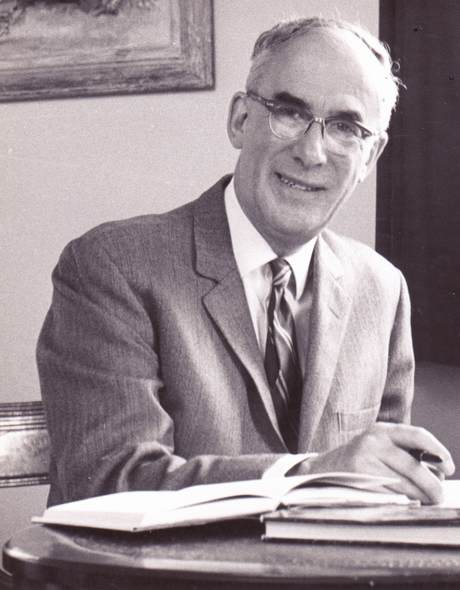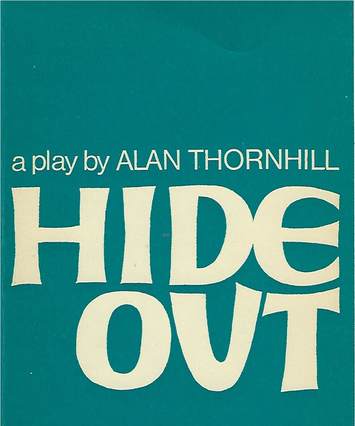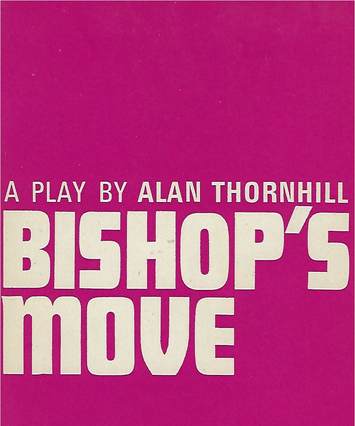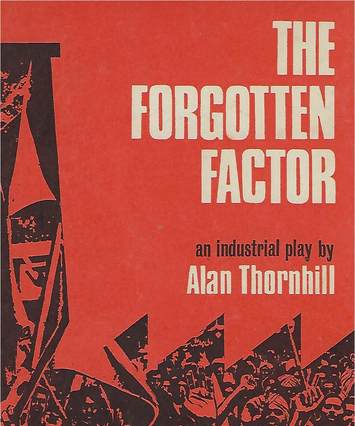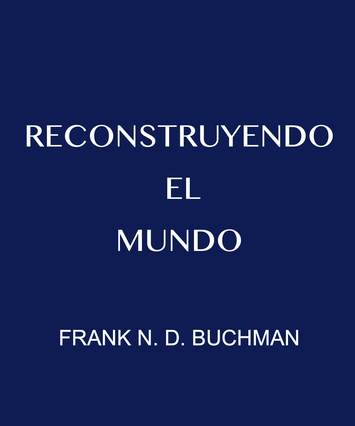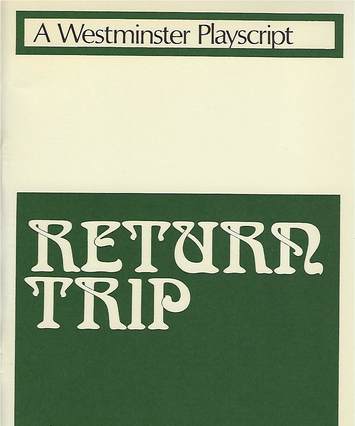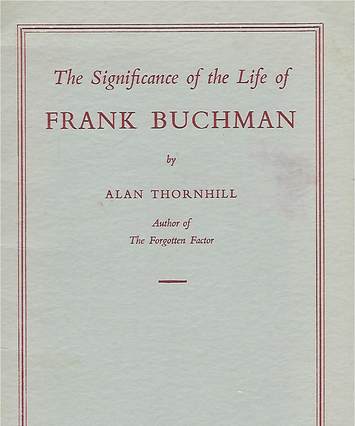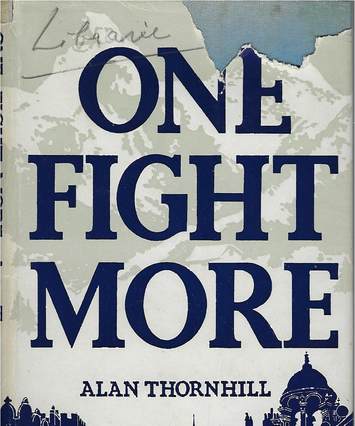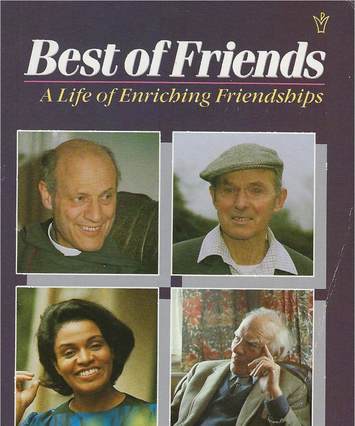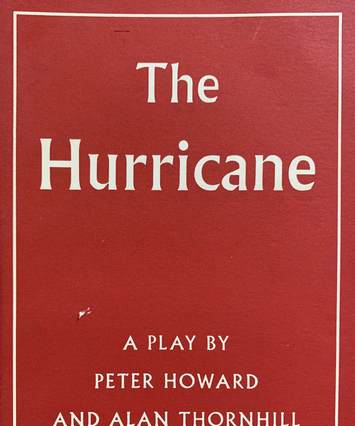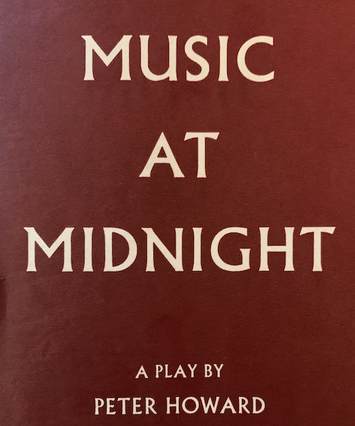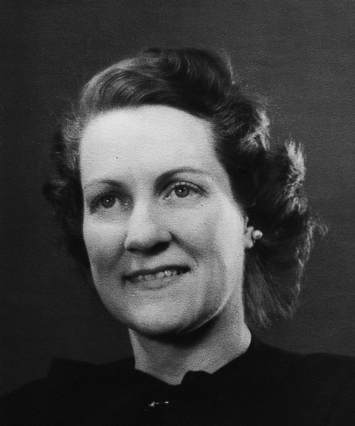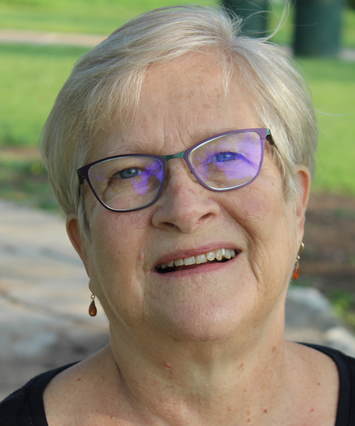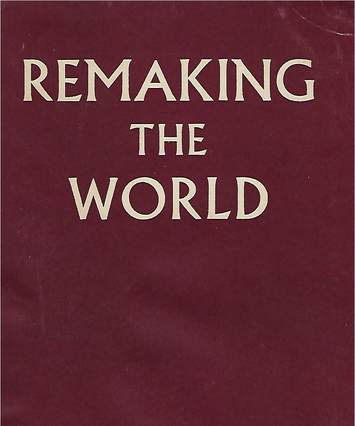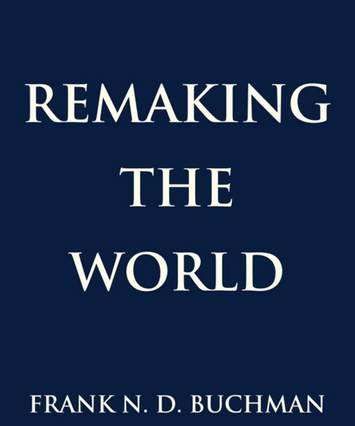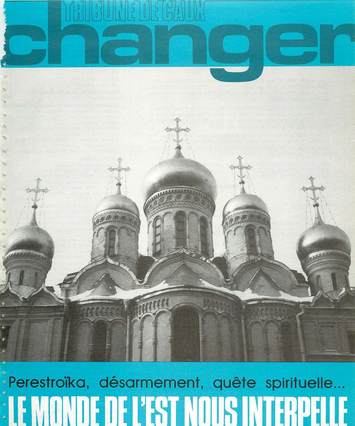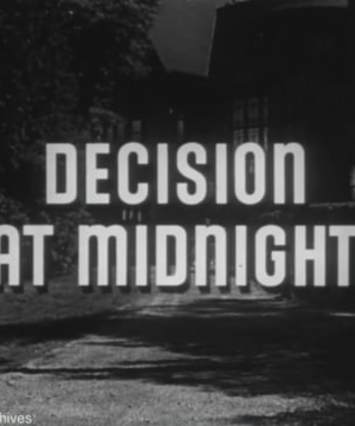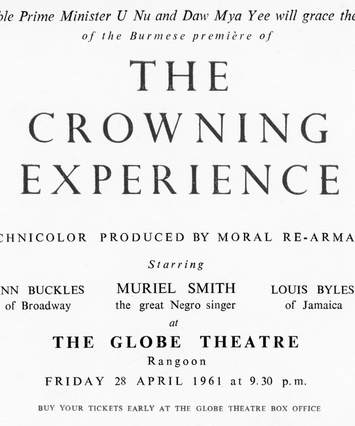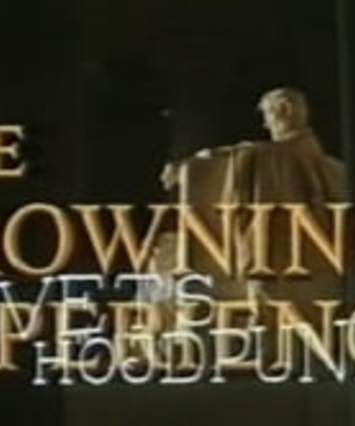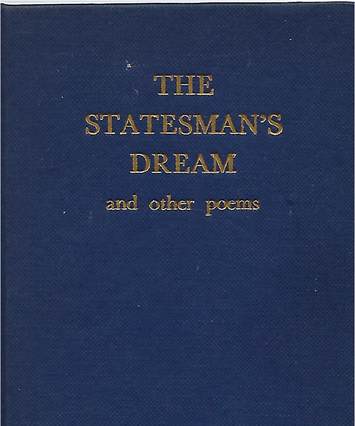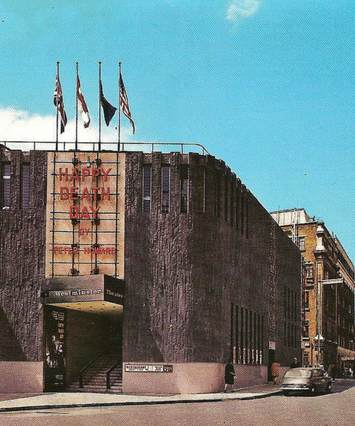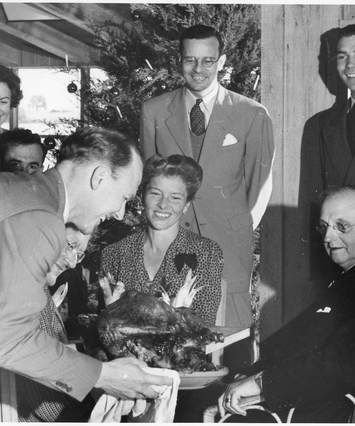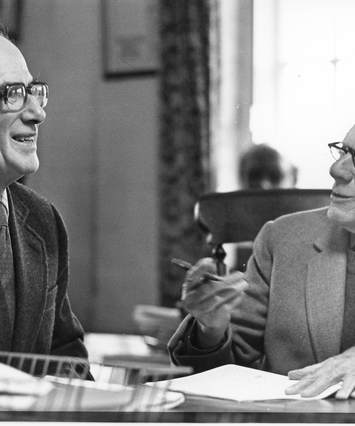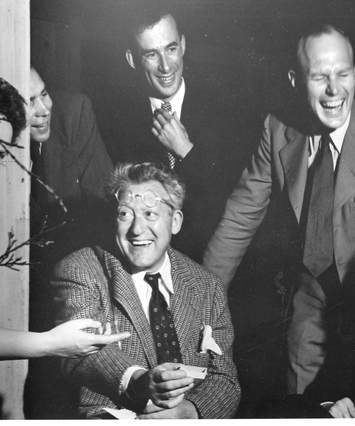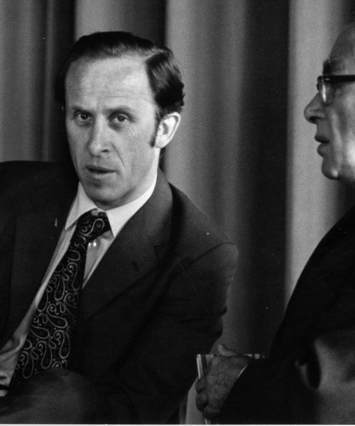Alan Edward Carlos Thornhill, priest and author of numerous musicals, historical plays, revues and domestic comedies, was born in Liverpool, England, and educated at Repton School and Hertford College, Oxford. He received ordination in 1929, and served a large London parish before returning to Oxford College as Fellow and Chaplain.
At Oxford in 1928, he befriended Frank Buchman (1878-1961) at an informal but momentous house party, initiating Thornhill’s lifelong association with the Oxford Group, which soon evolved into Moral Re-Armament (now called Initiatives of Change). In fact, it was an offhand remark from Buchman that nudged him toward the world of literature. Buchman, aware of Thornhill’s incessant theater-going, commented, ‘Of course the theatre is a tremendous force. It could help to transform society.’ Later, when Buchman asked what he was writing, Thornhill responded, ‘Nothing.’ Very casually, Buchman said, ‘You’re a fool.’ Shortly thereafter, Thornhill seized pen and paper, writing the fateful words, ‘Act One Scene One,’ the inauguration of his literary career. Now his desk was his pulpit. His first play, The Forgotten Factor (1940), deals with human and ideological clashes during a tense strike. It was first performed for Ford factory employees, with Henry Ford in attendance. Later it was performed for Senator Harry S. Truman, President Rooseveldt's right-hand man in quelling seemingly unbreakable labour gridlock. Impressed, Truman agreed to sponsor a national premiere in Washington, DC, touting it as ‘…the most important play to come out of the war. There is not a single bottleneck in industry that could not be broken if these ideas are given the green light...’ Thornhill’s involvement with MRA often escorted him into controversial territory.
Travelling across the U.S. in the 1950s, he discovered first-hand the anguish erupting within the Civil Rights movement. In response he wrote The Crowning Experience (1957), based on the life of Afro-American educator Mary McLeod Bethune, daughter of former slaves. The play’s title is derived from a statement uttered by Bethune when, at an MRA event, she stood peaceably with a repentant racist: ‘To be a part of this great uniting force of our age is the crowning experience of my life.’ It debuted in Atlanta, GA, to 11,000 its first weekend. In an unprecedented action, the owner of the theatre opened the doors to both black and white audiences, promising continued use for as long as the production company could fill it. In 1978, Thornhill and conservative journalist Malcolm Muggeridge collaborated on Sentenced to Life: A Parable in 3 Acts, first performed at London’s Westminster Theatre. The play, exploring euthanasia without oversimplifying, attempts to flesh out the spiritual implications of an issue often seen purely in terms of economics, vague sentimentality or personal comfort.
A talented and fast essay writer, Thornhill also possessed a rare genius for sustaining varied, substantive friendships. In Best of Friends (1986), he relates a series of revealing but invariably kind-hearted portraits of those who’ve enriched his spiritual and intellectual life, including Buchman, Muggeridge, comedian Charlie Chaplin and mezzo-soprano Muriel Smith, who, on stage and film, so memorably realized the role of Bethune. Other works include Mr. Wilberforce, MP (1965) Bishop’s Move (1968), Hide Out (1969) and Ride! Ride! (1976), based on the life of John Wesley. A prose work, Three Mile Man (1980), lovingly chronicles the charms of wildlife in Rotherfield, Sussex, through the eyes of his friend and gardener, Peter Warnett, Thornhill married American Barbara van Dyke in 1947.
Taken from the introduction to the Alan Thornhill Papers, 1927-1992 | Special Collections, Buswell Library at Wheaton College, USA.
Alan Thornhill's papers are at Wheaton College: https://www.foranewworld.org/more/places/wheaton-college-archives

